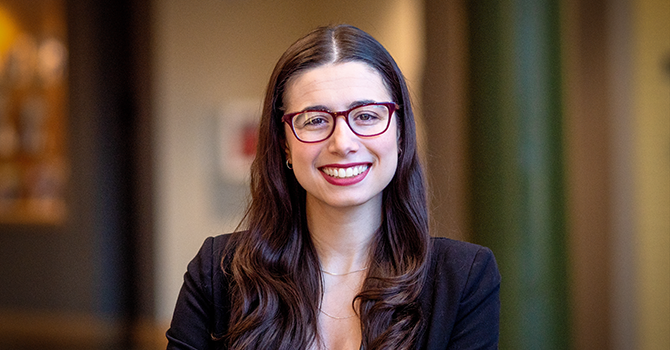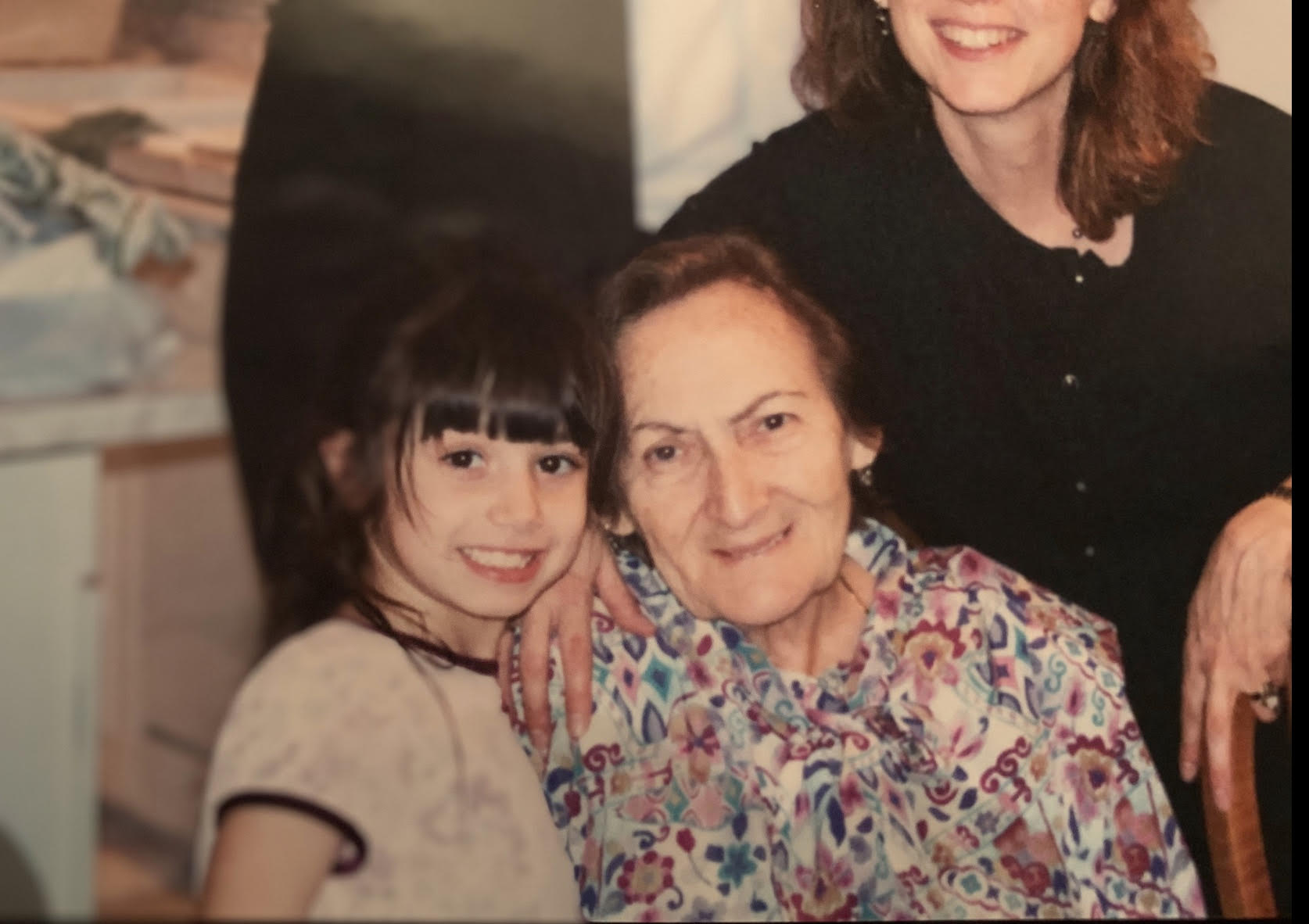Honoring My Grandmother: In Pursuit of a Healthy Future

Batsheva Honig
Master's Student in Health Behavior and Health Education and Health Management and Policy
This article was published before the name of the Department of Health Behavior & Health Education changed to the Department of Health Behavior & Health Equity. Learn more about this change.What led to your interest in public health?
My maternal grandmother—whom we affectionately called Bubby—lived with my family during my childhood years. Her influence led me to pursue a career in public health. She taught me that every person matters and that without our health we have nothing. Bubby was a Holocaust survivor who was held captive in multiple concentration camps, including Auschwitz and Bergen-Belsen during her teenage years. Despite the tragic loss of her family and home, my Bubby did not allow tragedy to rob her of her humanity or her giving nature. She lived on, and after World War II she became a nurse, giving back to repair a world that had taken so much from her.
I strive to honor my grandmother's legacy by making positive, sustainable change in the healthcare field for the benefit of as many as individuals and communities as I can.
I a spire to care for the welfare of others, just as my late Bubby did. I strive to honor
my grandmother’s legacy by making positive, sustainable change in the healthcare field
for the benefit of as many as individuals and communities as I can.
spire to care for the welfare of others, just as my late Bubby did. I strive to honor
my grandmother’s legacy by making positive, sustainable change in the healthcare field
for the benefit of as many as individuals and communities as I can.
What parts of public health are the most interesting to you?
I am most interested in health reform, particularly insurance reform and public health law. Through the collaboration of communities, public health agents and other stakeholders, I believe we can address issues such as increasing quality of healthcare and improving access to healthcare. The fact that the U.S. spends more on healthcare than any other OECD country without achieving better health outcomes (such as life expectancy and maternal mortality, to name a few), is a concerning problem.
Through a career in public health, I hope to connect communities with resources, drive policy solutions and shape healthier communities. I strive to be a change-agent. I want to be a part of the team that makes inroads to finding solutions of a lasting nature to address health disparities and systemic inequalities that lead to poorer health outcomes and inefficient care use and delivery.
How did you come to Michigan Public Health?
I started in undergrad thinking I would be a pre-med major, but after working and volunteering in my local community, I realized that there was more than one avenue in which I could positively impact peoples’ lives. Time volunteering as a hospice patient care volunteer was very formative. I was confronted with the reality of mortality and the understanding that without health and wellbeing it is hard—if not impossible—to achieve one’s full potential. I learned the importance of compassion and empathy and the value in partnering with communities and individuals who face health issues to find resources, determine options, and formulate a plan of action. I began to ask questions of myself and those around me and that led me to pursue a degree in Psychology with a minor in Poverty and Human Capability Studies.
Public health touches everyone's lives—from where we live to what we eat, both social determinants of health and healthcare impact individuals and communities.
After that, I challenged myself to think about what was the best way to make use of my abilities in order to help the most people. Public health touches everyone's lives—from where we live to what we eat, both social determinants of health and healthcare impact individuals and communities. For those reasons, and my personal commitment to change the status quo, I’ve chosen to pursue a dual degree in Health Behavior and Health Education and Health Management and Policy. These two concentrations will equip me with the tools to work collaboratively with communities to shape policies and health systems. Michigan is one of the strongest and most rigorous public health schools in the country. I wanted to go to a place dedicated to excellence that encouraged innovation, research and inquisitiveness in my field of study.
What other activities do you participate in?
I work as a graduate research assistant with Dr. Rick Neitzel, looking into the relationship between noise and health in hospitals. I also volunteer as an Admissions Ambassador here at Public Health. I had a lot of questions before starting the program, and it was helpful to talk to someone before arriving on campus. Now I enjoy answering questions and clarifying some of the unknowns for prospective students to help them feel more comfortable and confident in whatever decision they end up making. I hope that speaking directly with a potential student or giving a tour will help that individual make a decision that is right for them. I see value in giving back by sharing what I know about Michigan’s Public Health programs with others.
More about Batsheva
Batsheva serves as an admissions ambassador, where she helps to engage with prospective students and share her experiences as a student at Michigan Public Health. Want to know what life as a public health student is like? Check out Michigan Public Health’s “Day in the Life” student takeovers on Instagram.Prospective students interested in pursuing a public health degree can sign up to chat with admissions ambassadors like Batsheva to learn more about a public health education, life as a student at Michigan Public Health, and more.
- Read more stories from students, faculty, staff and alumni.
- Interested in public health? Learn more.
